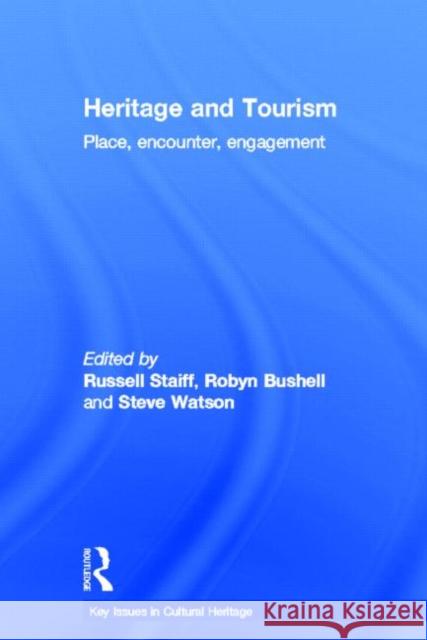Heritage and Tourism: Place, Encounter, Engagement » książka
Heritage and Tourism: Place, Encounter, Engagement
ISBN-13: 9780415532648 / Angielski / Twarda / 2012 / 320 str.
Heritage and Tourism: Place, Encounter, Engagement
ISBN-13: 9780415532648 / Angielski / Twarda / 2012 / 320 str.
(netto: 718,58 VAT: 5%)
Najniższa cena z 30 dni: 654,86
ok. 16-18 dni roboczych.
Darmowa dostawa!
The complex relationship between heritage places and people, in the broadest sense, can be considered dialogic, a communicative act that has implications for both sides of the conversation . This was the starting point for the collection of essays in "Heritage and Tourism" . However, the dialogue between visitors and heritage sites is complex. Visitors have, for many decades, become synonymous with tourists and the tourism industry and so the dialogic relationship between heritage place and tourists has produced a powerful critique of this often contested relationship.
The shape of this critique is multifaceted. There is a constant jostling between the conservation imperative, however described and rationalized, and the economic imperative of tourism. At one extreme, the meanings constructed by heritage sites (and the heritage industry ) are adopted and adapted by tourists and the tourism industry within a relationship of recognised mutual dependency where values and meanings are shared. At the other extreme, heritage places are cynically lassoed into the packaging of heritage as tourism products and attractions with a market value that has its locus in consumer desires and the promotion and marketing of commodified heritage products to maximize profit making. For the most part, the heritage tourism dialogue is built upon a heady combination of these motives mediated by the heritage experience of the tourist/visitor.
At the heart of the dialogic relationship between heritage places and people is the individual experience of heritage where generalities give way to particularities of geography, place and culture, where anxieties about the past and the future mark heritage places as sites of contestation, sites of silences, sites rendered political and ideological, sites powerfully intertwined with representation, sites of the imaginary and the imagined. Thus the sub-title of this collection of essays: place, encounter and engagement.
Under the aegis of the term dialogues the heritage/tourism interaction is reconsidered in ways that encourage reflection about the various communicative acts between heritage places and their visitors and the ways these are currently theorized, so as to either step beyond where possible the ontological distinctions between heritage places and tourists or to re-imagine the dialogue or both.











